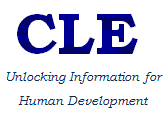
|
Internationalized Domain Names for Pakistani Languages |
||
|
|
Background Recent advances in technology have played a major role in the economic and social development of societies all over the world. However, educating people in emergent information technologies is not possible without taking language into account. Approximately seven thousand languages are spoken throughout the world of which only a hundred have writing systems. Access to information and communication technologies in developing countries is even more restricted, mainly due to language barriers. While the evolution of computing methodologies, expansion of the Internet and web applications have increased the number of technology users around the globe, many still rely on knowledge of English to access these ICTs. Therefore, it is important that easy access to web services be provided to people having diverse country and cultural backgrounds and language requirements. Internationalization of applications guarantees that users all over the world can equally access and utilize them. More formally, internationalization is the process of designing applications and software products to include local-specific information so that they can be adapted to specific cultural, language and local needs. In the context of Internet it can be achieved either in the form of multilingual content or accessing this content through multilingual domain names. Internationalized Domain Names (IDNs) serve the purpose of multilingual addresses. IDNs contain non-ASCII characters in the domain name string to provide effective representation of web addresses in local languages such as Arabic, Hebrew, Chinese, etc. With IDNs www.crulp.org can be represented as ووو۔مرکزتحقیقات اردو۔ادارہ . The need for internationalized addresses emerges on grounds similar to those of having multilingual content on the Internet and in computer applications. Despite the availability of localized content on the Internet, accessing it still requires knowledge of Latin script and English language. This is primarily due to the fact that the addressing system of Internet, the Domain Name System (DNS) uses domain names based on Latin script. Domain names appear in URIs and are means to address the computer system on which the content is located. Before delving into the details of internationalized addresses, a brief examination of how the DNS – the Internet domain name/ addressing system – works. In order to prevent the change of underlying DNS framework in its entirety, an application level solution has been designed to handle internationalized domain names in the Internet. The basic idea is to convert non-ASCII domain name to an ASCII-compatible form that is suitable for use in DNS. Research on IDNs first started in March 1998 at the National University of Singapore and a couple of workgroups were established by mid 1998 namely iDNS Working Group and Asia Pacific Networking Group (APNG). During the next two years a number of iDNS test beds were established in various Asia Pacific countries including China, Japan, Thailand, Taiwan, Hong Kong and Singapore. Moreover, IDN prototypes were developed and demonstrated at different meetings and conferences. The first commercial IDN solution for internationalized domain names and email addresses was created in October 1999 by two private companies, iDNS.net and iEmail.net respectively. However, it was only in late 1999 that IETF held a BoF meeting on IDNs. Meanwhile, iDNS.net launched the first commercial IDN in Taiwan which used Chinese characters. In January 2000, IETF formed a working group on IDNs chaired by James Seng. Its charter was to identify requirements and develop standardized protocols for allowing the use of non-ASCII characters in domain names. In March 2003 IETF published standards for the implementation of IDNs as RFCs 3490, 3491, 3492 and 3454. These RFCs collectively refer to the standard called IDNA 2003. Work on IDNs is still underway and the IETF working group has published another set of Internet drafts for the revised version of IDNs standard namely IDNA 200x. Relevant information on the standards is available in the research section of this website.
|